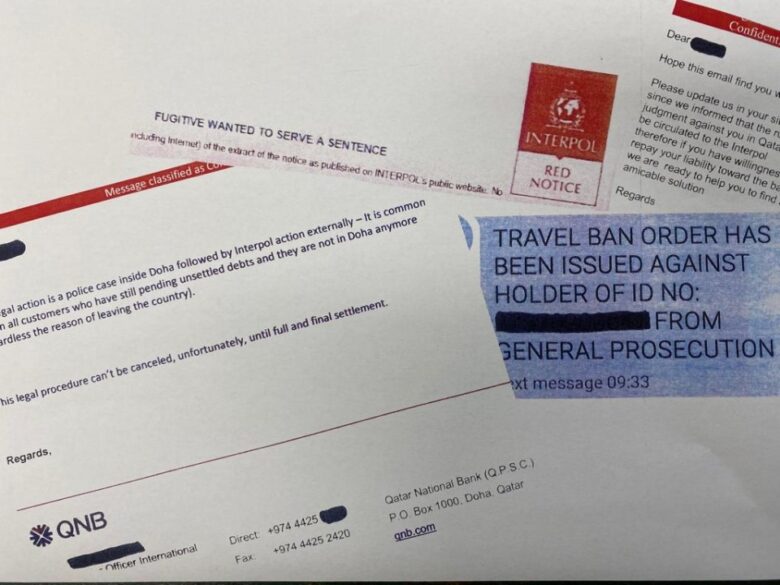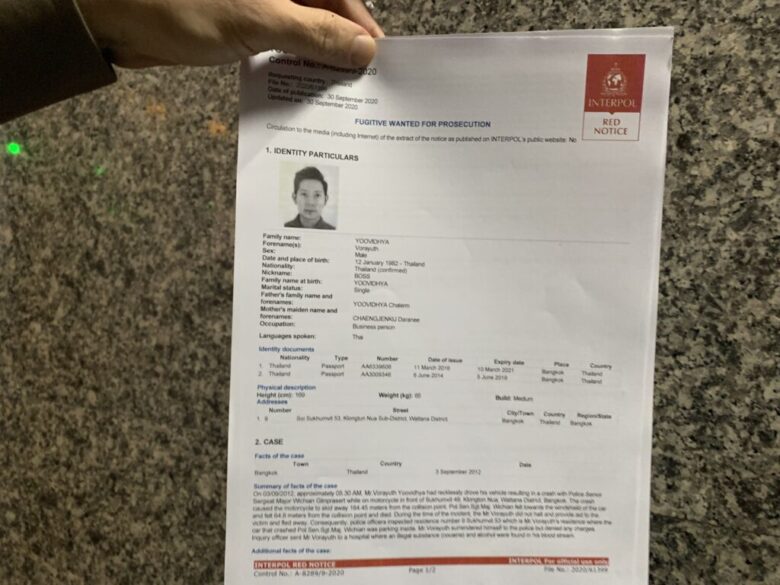Getting slapped with a Red Notice from Interpol can be daunting, even if you believe it to be a mistake or a misunderstanding. The Red Notice, which is a request to locate and provisionally arrest an individual pending extradition, is issued at the request of a member country based on either a valid national arrest warrant or a court decision. So, what do you do if you find yourself in this unenviable situation? Here’s a step-by-step guide on navigating the complex process.
Contents
- 1. Contact a Specialized Interpol Attorney
- 2. Understand the Red Notice
- 3. Reach Out to Your Local Embassy or Consulate
- 4. Monitor Potential Extradition Requests
- 5. Engage with Online Legal Communities
- 6. Challenge the Red Notice
- 7. Be Prepared for the Long Haul
- 8. Educate Yourself and Stay Updated
- 9. The Importance of a Good Defense
- 10. The Different Types of Interpol Notices
- 11. Implications for Travel and Immigration
- 12. Building a Support Network
- 13. Transparency and Communication
- 14. Potential for Misuse of Red Notices
1. Contact a Specialized Interpol Attorney
Your first step should be to get in touch with a lawyer who specializes in Interpol matters. An organization like the Interpol Law Firm works worldwide with Interpol notices, and they are equipped with the experience and resources to help. It’s imperative that you seek legal advice immediately, as a timely response can affect the outcome.

Source: protos.com
2. Understand the Red Notice
Before you react, it’s important to understand the nature and specifics of the Red Notice you received. A Red Notice isn’t an international arrest warrant, but rather a request for cooperation among member countries. According to Wikipedia, it’s one of the eight Interpol notice systems used to share information between its members.
3. Reach Out to Your Local Embassy or Consulate
If you’re living in a foreign country, it’s beneficial to contact your country’s embassy or consulate as soon as you learn about the Red Notice. They can provide you with basic advice, resources, and sometimes even legal contacts in the country you’re in.
4. Monitor Potential Extradition Requests
A Red Notice can lead to your arrest and potential extradition. Familiarize yourself with the extradition treaty (if any) between the country you’re currently in and the country requesting your extradition. The US Department of State provides resources on this, and for those outside of the US, you can access information through the respective government websites.

Source: lawtechnologytoday.org
5. Engage with Online Legal Communities
When you’re in a location with limited access to legal professionals, online legal forums and communities can be invaluable. Platforms such as Avvo or specialized legal forums can connect you with professionals or individuals who’ve faced similar situations. They can provide advice, recommend lawyers, or share personal experiences.
6. Challenge the Red Notice
With your lawyer, you can file a request to challenge the Red Notice through the Commission for the Control of INTERPOL’s Files (CCF). This independent body reviews cases and ensures they comply with Interpol’s rules and regulations.
7. Be Prepared for the Long Haul
Addressing a Red Notice can be a lengthy process. Ensure you have the emotional and financial resources to navigate it. Stay informed, seek professional advice, and be proactive in defending your rights.

Source: attorneyatlawmagazine.com
8. Educate Yourself and Stay Updated
While professionals will assist you through the legal intricacies, it’s also beneficial to educate yourself about Interpol, its operations, and its relationship with various countries. Regularly check Interpol’s official website and subscribe to relevant legal newsletters or updates. By staying informed, you empower yourself to ask the right questions, make informed decisions, and understand the broader implications of your situation. Remember, knowledge is a powerful tool in any crisis.
9. The Importance of a Good Defense
While the immediate reaction to a Red Notice may be one of panic or confusion, remember that every individual is entitled to a defense. When facing a Red Notice, the strength of your defense can significantly determine the outcome of your case. A strong defense is built on thorough research, credible evidence, and a deep understanding of international law.
10. The Different Types of Interpol Notices
It’s crucial to comprehend that a Red Notice is just one among a spectrum of alerts issued by Interpol. Understanding this spectrum can provide context and guide you through the potential implications of your notice. For instance:
- Blue Notice: Used to collect information about a person’s identity or activities.
- Green Notice: To provide warnings or criminal intelligence about individuals who may commit offenses in a member country.
- Yellow Notice: To locate missing persons or identify people unable to identify themselves.
Being aware of these distinctions can help you clarify any misconceptions about your situation.

Source: linkedin.com
11. Implications for Travel and Immigration
A Red Notice can have severe implications for international travel. If you are considering traveling or if you’re currently outside of your home country, it’s essential to understand these repercussions. Countries may deny entry or even arrest individuals based on the Red Notice.
In terms of immigration, if you are in the process of applying for a visa or residency in a foreign country, a Red Notice might affect your application status or lead to deportation.
12. Building a Support Network
The emotional toll of facing a Red Notice can be daunting. Apart from the legal and procedural challenges, there’s also the potential for social stigma and isolation. Reach out to friends, family, and support groups to help you cope with the stress. A support network can provide not just emotional comfort but also material resources and connections that can be crucial in your defense.
13. Transparency and Communication
In the age of technology, news spreads fast. If you’re a public figure or if your case garners media attention, consider being transparent about your situation. This doesn’t mean divulging every detail, but putting forward your side of the story can help control the narrative and prevent misinformation.
Working closely with a public relations professional can also be beneficial in managing communications and media relations.

Source: khaosodenglish.com
14. Potential for Misuse of Red Notices
It’s worth noting that while Interpol’s Red Notice system is valuable for global cooperation in apprehending fugitives, it isn’t infallible. In some instances, countries have allegedly used Red Notices for political or retaliatory purposes. Being aware of this can provide an additional layer to your defense, especially if there are grounds to believe the Red Notice was issued in bad faith.
Final Words
Facing an Interpol Red Notice can be a bewildering and overwhelming experience, but by being proactive, gathering the right resources, and building a robust defense, you can navigate this challenge. Whether it’s understanding the nuances of Interpol’s procedures, ensuring your travel and immigration plans are unaffected, or rallying a support network around you, remember that you have rights and options. Your resilience, combined with a knowledgeable legal team, can guide you towards a favorable outcome.
